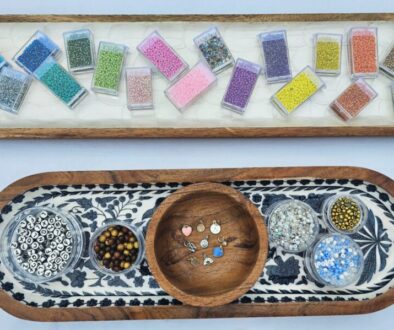
Don’t Let Food Poisoning Be your Uninvited Guest
One of the best things about the holiday season is the celebratory feasts at every turn. However, amidst the excitement and gastronomic indulgence, food poisoning can easily become the uninvited guest nobody wants to entertain. Read on to protect yourself and still enjoy the bounty!
The Reality
The CDC reports that each year, 48 million people in the United States get sick from a foodborne illness. The number of cases trends upward when events and gatherings are at an all-time high during the holiday season.
Not Just a Spoiler Alert
Food poisoning doesn’t just ruin your festivities; it can lead to severe dehydration, requiring medical attention or hospitalization. It’s especially dangerous for children, the elderly, people who are pregnant or have immune problems.
Top Culprits
Keep an eye out for these high-risk items commonly found at American holiday gatherings:
- Eggnog – Often made with raw eggs, it’s a breeding ground for Salmonella. Opt for plant-based alternatives, and ensure they’re always kept refrigerated or on ice during the party.
- Meat and Poultry – Undercooked meats can harbor harmful bacteria like E. coli. Ensure work surfaces, sinks and handles, cutting boards and cutlery are disinfected after raw meat or poultry preparation. A spray disinfectant works best – let sit for the recommended amount of time before putting in the dishwasher to kill any remaining bacteria.
- Seafood – Improperly stored fish can lead to scombroid poisoning. Don’t leave shrimp cocktails or other fish dishes out, and be sure to thaw in the refrigerator, not on the counter.
- Buffet Food – Left out too long, these can become a playground for bacteria. If you’re eating out, make sure to eat the freshest dishes, and check that the restaurant is monitoring food temperatures. At home, serve on heated or cooled buffet trays, and promptly refrigerate any leftovers immediately after eating.
Safety Tips to the Rescue
- Wash Hands Thoroughly: Before preparing or eating food, wash your hands for at least 20 seconds.
- Cook to the Right Temperature: Use a food thermometer to make sure meat is cooked to a safe internal temperature. Don’t rely on the pop-up thermometer in the turkey or ham as it’s not accurate.
- Store Food Properly: Keep hot foods hot and cold foods cold. Don’t let food sit out for more than 2 hours.
- Be Mindful of Leftovers: Store leftovers in small portions in airtight containers and consume them within 3 to 4 days. Don’t reheat and then refrigerate leftovers as this breeds bacteria.
- Consult Experts: If you’re responsible for a big event, it’s a good idea to have someone with a food handling certificate working on your event to ensure food safety measures are being met.
If You’re Sick
Most cases of food poisoning are self-limiting, that is, they’ll go away on their own. Stay hydrated with electrolyte solution, and stick to a bland diet for a couple of days. If your symptoms are severe, you’re unable to keep any water down, or it lasts longer than 2 days, seek medical attention. Be sure to let them know what you ate and from where so public health officials can track outbreaks.
This holiday season, let’s make sure that the only thing spreading is cheer, not foodborne illnesses. Food poisoning is preventable if we take the right precautions. So, keep the focus on enjoying your family, friends, and the joyous atmosphere—and keep food poisoning off the guest list.
*The information provided in this blog post is intended for general informational purposes only. It is not a substitute for professional medical advice, diagnosis, or treatment. Always seek the advice of your healthcare provider or a qualified medical professional with any questions you may have regarding a medical condition. If you suspect that you have food poisoning or any other medical emergency, call 911 or seek emergency medical help immediately.*



